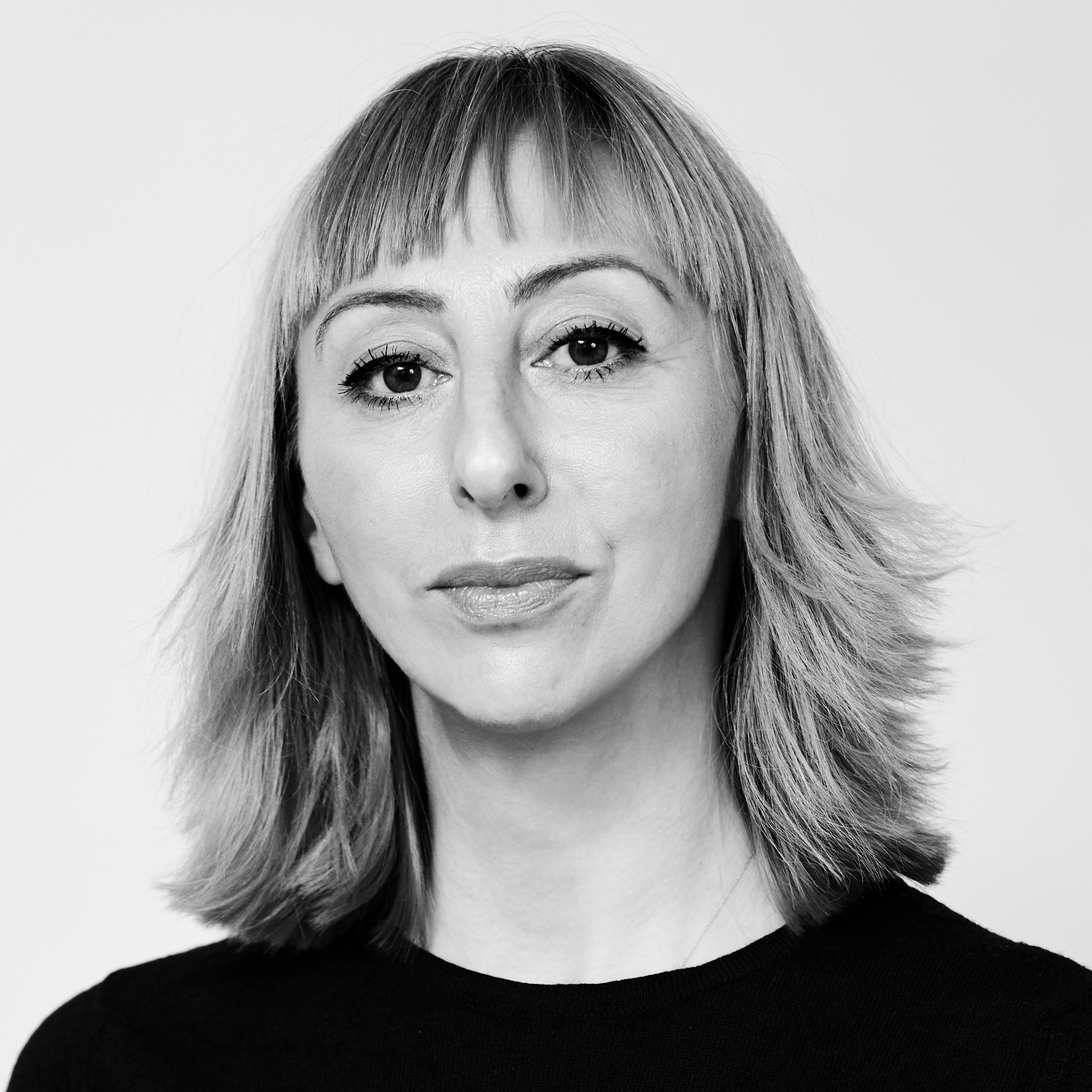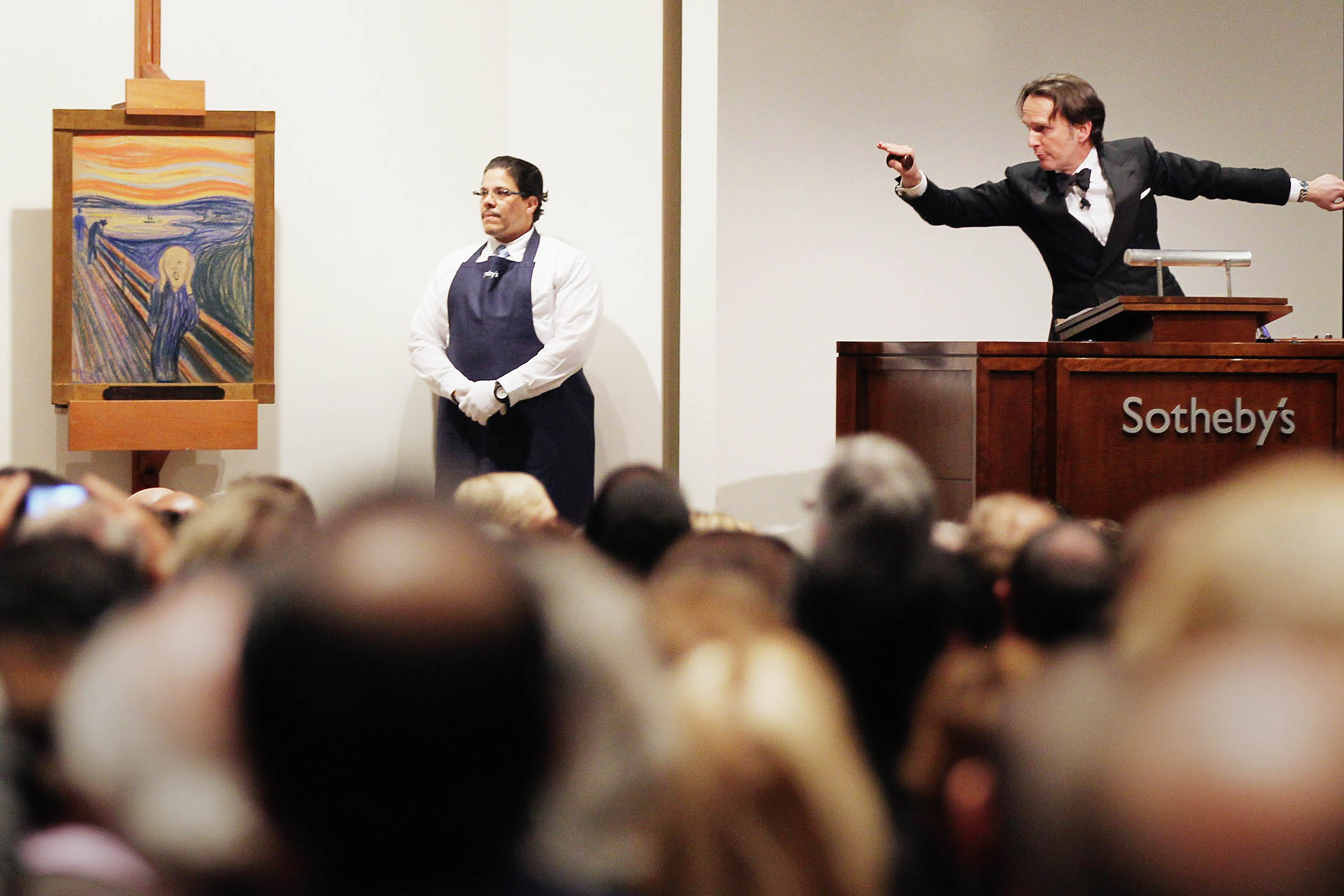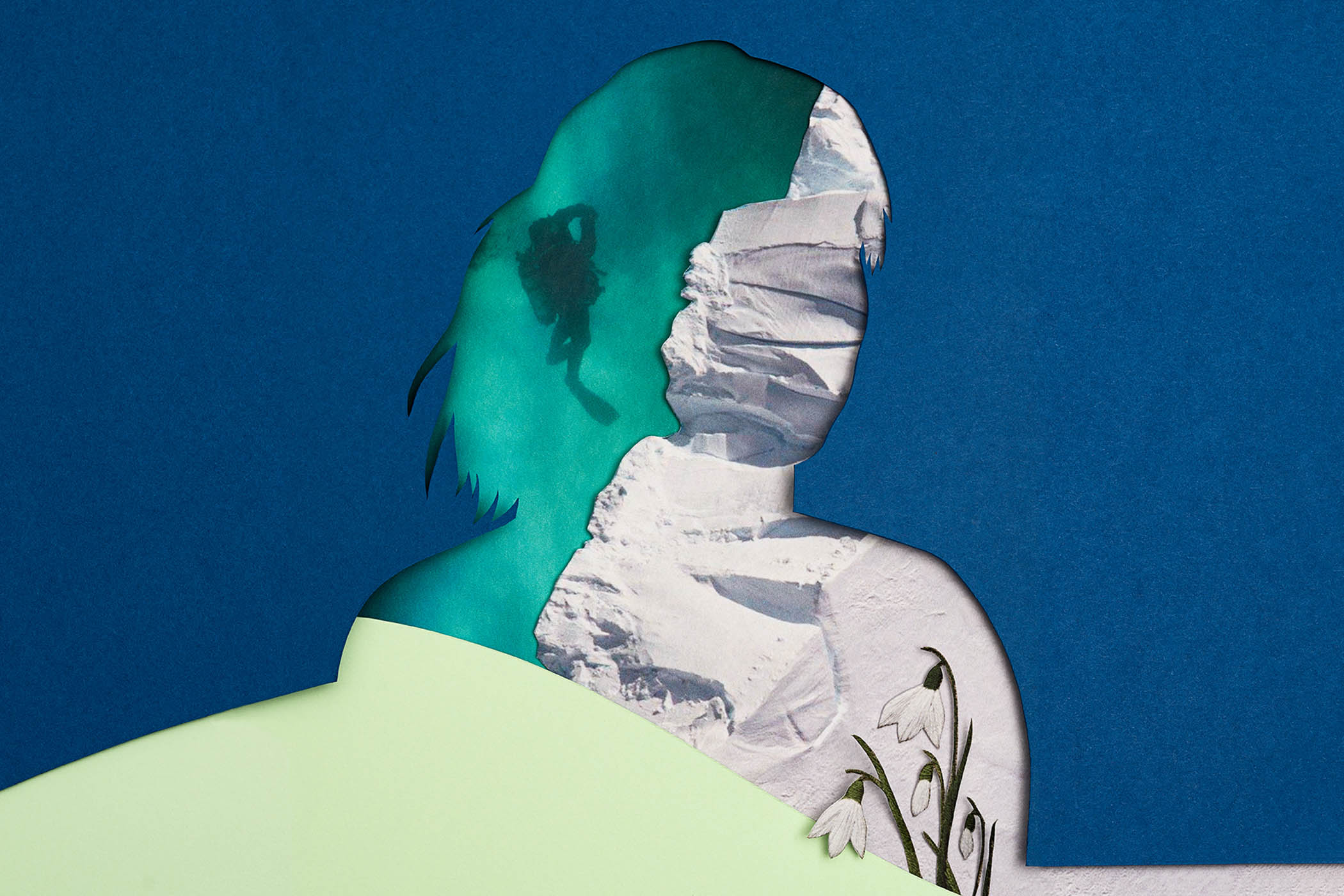Photography by Harry Borden
Being interviewed by Lynn Barber is widely understood to be a complete nightmare, but interviewing her, I can happily report, is an utter treat. At home in north London she settles me into a deep sofa with a coffee and sparks up a cigarette, the first of, I believe, five. The room is long, carpeted, grand, hung with art and filled with a comforting smoky light. A miniature Jesus balances on a tightrope across the ceiling (a sculpture by the Nancy Fouts), a selection of Tracey Emins greet visitors by the door and, on the wall, there’s a self-portrait by her late husband David Cardiff, who died at 59. “It’s interesting to be interviewed,” she offers, in her voice like an unglazed pot. “But I don’t know if I’ve got anything very useful to say!”
When I started working at the Observer 20 years ago, Barber was our star interviewer. It was a time when “celebrity” was becoming a valid career option, so we sent her to profile Kerry Katona, “And I got shit for doing that,” she remembers, accurately, for taking her seriously. But, “If you’re going to interview somebody, you can’t just go and sneer at them, can you?” She says, “I don’t think you should interview with attitude.”
Soon after that, Barber left the Observer for the Sunday Times (she never liked the Guardian, “Too smug”), but her first job in journalism was at Penthouse, where she spent four wild days interviewing Salvador Dalí (“Zee painters are always zee big masturbators,” he told her, “Zat is one good habit,”) and many happy years asking people about their sex lives. “The great thing I learned was to just lead an interviewee on and on and suppress any sort of reaction except light curiosity. ‘Oh, so you like amputees?’ sort of thing.”
Something changed for her when she persuaded her editor at the Sunday Express to let her write in the first person, unheard of then. “I think a great rule of life is, if people tell you it’s not professional to do something, that’s quite a good reason to do it.” Putting herself in her interviews she felt, “At last I can write really truthfully.”
The great thing I learned was to just lead an interviewee on and on and suppress any sort of reaction except light curiosity
The great thing I learned was to just lead an interviewee on and on and suppress any sort of reaction except light curiosity
A regular Penthouse slot she edited asked interviewees what they wish they’d known at 18. What would hers be, I wonder. Perhaps something about contraception? She slept with 50 men at university, but only one girl had a diaphragm, which meant Barber had to book it from her on the Monday, for, say, sex on the Friday. But no, “At 18, I sort of wish I hadn’t been such a swot,” she muses, and it might have been good to know earlier, she adds, at 16, “that my new boyfriend was going to turn out to be a married con man. But on the other hand, my two years with him gave me a sort of veneer of worldliness, so that I wasn’t completely suburban when I got to Oxford.” This was the boyfriend who was 24 years older than her and immortalised in the Oscar-nominated film An Education, which launched Carey Mulligan’s career and led to a flurry of media interest in Barber, who until then had been quite happy on the other side of the tape recorder.
Quite, quite happy – there were three-hour lunches and bottomless expense accounts, and two daughters and a joyful marriage, and starry clashes with interviewees like Marianne Faithfull (who was, “Late, rude, heroically self-deluded,” Barber wrote in her memoir) and Harriet Harman (“I asked why she thought people said she was thick,”) then later, interviews with artists such as Emin and Sarah Lucas, who became close friends. In 1992, Graydon Carter employed her at Vanity Fair. “They paid me $250,000 a year to be their lead interviewer, which just didn’t work out.” Why? “Because nobody would be interviewed by me!” She spent the lot on art and became, as time passed, though she’d dispute it, an artist in her own right, a master of the conversation. There has really been nobody like her, before or since.
Much of her fame comes from our readers’ relish for conflict. Was there ever romance? “Oh! Well I liked the Welsh actor Rhys Ifans enormously. And when I played the tape back, I thought, ‘Oh my God, you’re giggling like a schoolgirl.’ You could hear that I fancied him! But no, I slightly think, the reason I’m good is because I’m not engaged in that way.” Beyond that advice, if young journalists ask her for tips today, “I’d say ‘Get out,’ probably.” Be an influencer instead? “Maybe I could be an influencer? What is an influencer?” I explain how, with the right combination of dry asides and clever dances she could probably earn £1m a year. “Really?” People will send you hats and special drinks! “Who? Randoms?” Yes!
I’m obsessed with Harry and Meghan, watching every YouTube thing about them, to the point that I could quote reams of her stuff
I’m obsessed with Harry and Meghan, watching every YouTube thing about them, to the point that I could quote reams of her stuff
She considers. Maybe? Because the only people she’s interested in interviewing at the moment are Harry and Meghan. “I’m currently very obsessed, watching every YouTube thing about them, to the point that I could quote reams of her stuff. I recently thought, this is becoming a bit of a bad obsession, I’d better stop. But they’re so ghastly! That vapid, bland stuff that she puts out, it is appalling! And his capacity for whinging is just mind-blowing!” What would she ask them, should the interview come off? “With Harry, I’d let him get all his whinging off his chest, blah, blah, blah. And really let it run on” [‘Oh so you like amputees?’] and then get around to saying, ‘Is there anything you would have done differently?’ Ghastly!”
Through interviewing she learned plenty about other people – what has she learned about herself?
Newsletters
Choose the newsletters you want to receive
View more
For information about how The Observer protects your data, read our Privacy Policy
She lights another cigarette. “Twice interviewers have asked me, have you ever been diagnosed as autistic? So I think, am I autistic? What they seem to think is a symptom of autism, is that I don’t particularly care about being liked.” She smiles, and holds my gaze. “When I was young it was always up to girls to have to pretend to be interested. I don’t any more.” What changed? “Well, once I was happily married to David and I was a mother, I thought, ‘Well I’ve got what I need, why would I need anything more?’”
How do people tend to respond to her lack of need to be liked? “They seem to find it odd. I did an early interview with Melvin Bragg where I was quite rude about him and people would say, ‘Weren’t you worried about running into him later?’ No! Why would I care whether Melvin Bragg liked me?”
She squints with real confusion. “People often also accuse me of being arrogant.” Does that bother you? “No. Now I’m old, all I worry about is the fact that my world is narrowing. Friends are dying, the amount of things I can do is narrowing, Tracey lives down in Margate and there was a time when I would hop on a train and go and see her, but now…” Are there any advantages to getting old? “I think the idea that you get wiser is absolute nonsense. I think you just get narrower and narrower, actually.”
Now 81, she’s no longer doing big interviews (her last was with Kemi Badenoch, “And it wasn’t very good”) and once, after being paid a large advance to write a novel, found she simply couldn’t do it (“I don’t have any imagination!”) – what would she like to do next?
All this assisted dying stuff makes me so cross. Why can’t doctors just hand out a cyanide pill when you ask for it?
All this assisted dying stuff makes me so cross. Why can’t doctors just hand out a cyanide pill when you ask for it?
“I mean, I’d very happily die! My parents lived until 92 and it was not a good thing. They sort of… dwindled.” She brushes a flake of ash off her sweater. “It seems to me I don’t need to live much longer. I had bowel cancer three or four years ago, and it was cured by surgery, but they said you ought to have chemotherapy as a preventative. And I thought, well, why?” Did your daughters agree? “The doctor said, when I refused chemotherapy, ‘You must ask your children.’” An expression of outrage on her face. “Why! Anyway, no, I didn’t consult them. I told them. I really seriously know that I don’t want to live another 10 years. People say, ‘You must give up smoking.’ Give up pleasure? No!”
Does she have a plan in place? To… not live? “I wish I had. I wish I had a pill in the bathroom. All this assisted dying stuff makes me so cross, the idea that you have to ask, to get permission. Why can’t doctors just hand out a cyanide pill when you ask for it? I would like to have one, just in case.”
How do you know when you’ve had enough life? “You feel it. I feel I’ve had enough. I’m not suffering in any way, but I do feel that things can only get worse, that more friends will die, that there’ll be more minor ailments and then major ailments. People say there must be something you look forward to. Becoming a great-grandmother or something – but I can’t wait that long, you know?”
Is that the thing though? Is that the thing you, Lynn Barber, would look forward to? “Well I was slightly thinking, will I ever go to Venice again? And, actually, I’m afraid the answer is no.” We sit for a while, the traffic silent outside. “I feel my work has been a real privilege,” especially the pieces which led to relationships with Emin, and Lucas, and David Hockney (who she’s interviewed many times, including once at a party for the pro-smoking lobby). “I’m just incredibly glad to know them. And I often think, if I just met them at a dinner party or something, I wouldn’t be able to have the sort of fulfilling conversation that I have had by interviewing them, you know?” Yes, Lynn, I say, finishing my coffee, I do.



